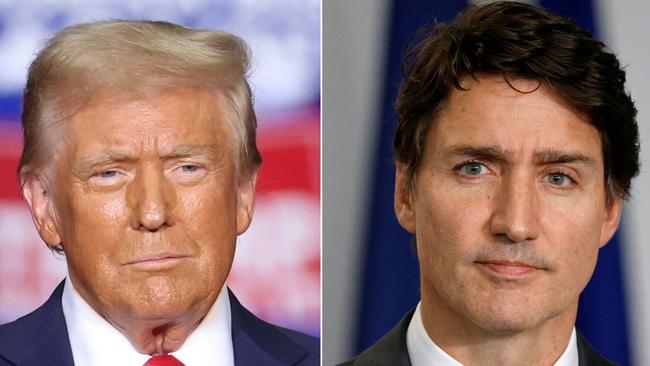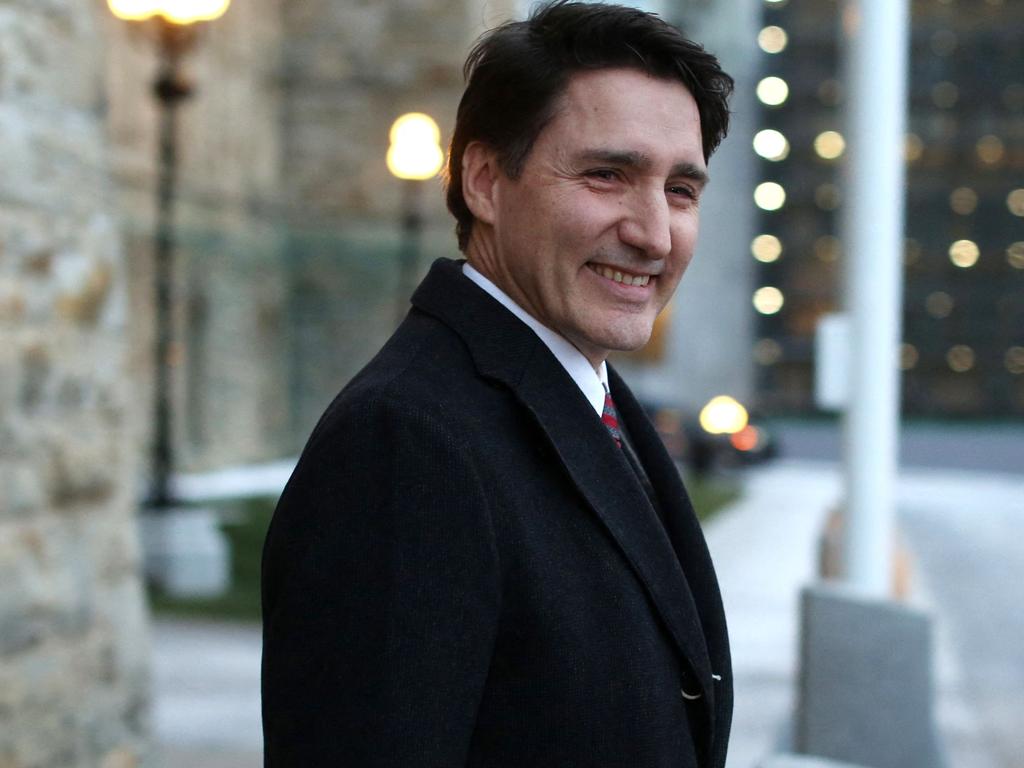
On Sunday evening local time, news broke that the Canadian Prime Minister was expected to announce his resignation.
Facing a caucus revolt brought on by the shock departure last month of deputy prime minister and finance minister Chrystia Freeland, an announcement from Trudeau was expected within 24 hours.
In an election year, Anthony Albanese must watch this episode carefully – it shows Trump’s willingness to make life uncomfortable even for the leaders of great friends of the US.
Albanese will be keenly aware it was Trump who brought the hammer down on Trudeau’s political career on November 25 – mere weeks after the November 5 election.
The fatal blow came in the form of a 153-word social media post.
On his own Truth Social platform, Trump vowed to sign an executive order on his first day in office imposing a 25 per cent tariff “on all products coming into the United States” from both Canada and Mexico.
China would also face an additional 10 per cent tariff.
That pledge sent shockwaves across the world. A political firestorm in Canada was ignited, with the tariff issue driving a wedge between Trudeau and Freeland.
On December 16, when Freeland stood down, she posted her damning resignation letter online. It revealed she did not see eye-to-eye with Trudeau over the best response to Trump’s policy of “aggressive economic nationalism”.
The political damage inflicted on Trudeau reveals him as the first foreign leader to fall casualty to the Trump 2.0 revolution – not an outcome that could have been reasonably predicted a few short months ago.
And all it took was the President-elect typing a few sentences into a smartphone and posting them online.
Trump didn’t stop there. He took it further, belittling the Canadian leader by referring to him as “governor” – a suggestion that the US could annex its northern neighbour by making it the 51st state.
Elon Musk, who is now working with Trump, has also demonstrated a willingness to wade into the domestic political affairs of other nations and recently backed the far-right AfD party in Germany.
In Britain, he called for fresh polls and backed the Reform Party before declaring at the weekend that its leader, Nigel Farage, wasn’t up to the job.
While conservatives will cheer Trudeau’s departure, his treatment by Trump – and Musk’s ongoing political commentaries – will fill many global leaders with a sense of unnerving trepidation and reinforce the unpredictable nature of the new administration.
Could Albanese become a target of the incoming President if he found himself at the end of a disagreement with Trump?
The evidence says it’s possible.
Remember that Malcolm Turnbull clashed with the US President-elect during his first term in 2017 over the deal, struck with the Obama administration, for the US to take in refugees held on PNG and Nauru.
While Trudeau was finished anyway – polls showed him miles behind Pierre Poilievre’s Conservatives – Trump has likely hastened his exit.
The world will view this saga as an example of Trump’s ability to effect change within other nations merely by issuing decrees online.
But it will also have an impact on Trump. It may serve as a reminder that his words have far-reaching consequences. It may also greatly embolden him in seeking to exercise his personal influence over events from afar.





Justin Trudeau was already finished, but Donald Trump helped drive the nails into the coffin.